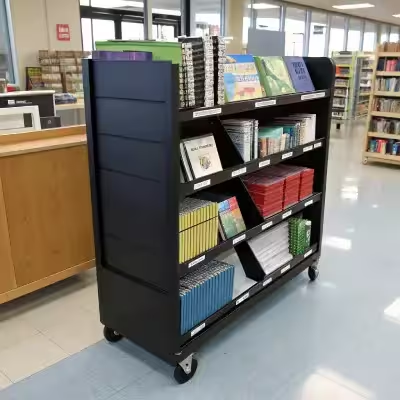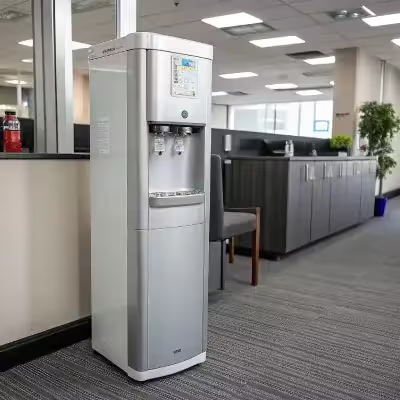Whether you’re recording interviews, lectures, podcasts, or ideas on the go, having a high-quality voice recorder can make a world of difference. In this blog post, we’ll dive into four standout options in the world of portable audio: the Zoom H5, Zoom H4, Sony ICD-UX570, and Sony ICD-PX470. These devices are known for their clarity, reliability, and ease of use—making them top picks for beginners and pros alike.
We’ll walk you through the features, performance, and use cases of each recorder to help you find the one that best matches your needs.
Why Use a Dedicated Voice Recorder?
While smartphones have basic recording features, dedicated voice recorders offer far superior audio quality, longer battery life, better noise reduction, and advanced controls. They’re designed specifically to capture high-fidelity sound in a variety of environments—perfect for journalists, students, content creators, and business professionals.
Zoom H5 Handy Recorder: Pro-Level Flexibility in Your Hand
The Zoom H5 is a versatile high-end voice recorder built for professionals who need flexibility and top-tier performance.
Key Features:
- Interchangeable microphone system: Comes with the XYH-5 X/Y mic capsule; compatible with other Zoom capsules.
- Four-track simultaneous recording: Two XLR/TRS combo inputs plus built-in stereo mics.
- Phantom power: Supports external condenser mics.
- Battery life: Up to 15 hours with AA batteries.
- Storage: Supports SD cards up to 32GB.
Who It’s For:
- Podcasters and content creators looking for multi-track recording.
- Musicians needing detailed live session recordings.
- Field recorders who want flexibility and professional control.
With its modular mic design and rugged build, the Zoom H5 offers studio-level features in a portable form, making it one of the best voice recorders on the market today.
Zoom H4n Pro: Studio Sound on the Go
The Zoom H4n Pro is a high-quality voice recorder ideal for both serious amateurs and professionals. It combines great sound quality with robust performance and flexibility.
Key Features:
- Built-in stereo X/Y mics for natural stereo imaging.
- Four-track recording: 2 XLR/TRS inputs + stereo mics.
- Phantom power: Supports external microphones.
- Battery life: Up to 10 hours with 2 AA batteries.
- Built-in audio interface: Plug it into your computer via USB.
Who It’s For:
- Indie filmmakers and video creators.
- Podcasters or interviewers recording in varied environments.
- Musicians capturing rehearsals or performances.
The H4n Pro is a trusted device for its clean, clear audio recording capabilities, whether in the studio or the field.
Sony ICD-UX570: Ultra-Portable with Impressive Clarity
The Sony ICD-UX570 is one of the most popular digital voice recorders for everyday users. It’s compact, budget-friendly, and loaded with smart features.
Key Features:
- Three recording modes: Normal, Focus, and Wide-Stereo for different environments.
- USB direct connection: Built-in connector for quick file transfer.
- Battery life: Up to 27 hours (recording), charges via USB in 3 minutes for 1 hour of use.
- Internal memory: 4GB built-in (expandable via microSD).
Who It’s For:
- Students recording lectures.
- Professionals recording meetings or notes.
- Bloggers and journalists needing a light, dependable recorder.
Despite its size, the UX570 delivers crisp and clear voice capture with smart noise reduction. It’s ideal if you want a clear recorder for everyday use.
Sony ICD-PX470: Easy-to-Use with Long Battery Life
The Sony ICD-PX470 is another affordable voice recorder, known for its user-friendly interface and solid audio quality.
Key Features:
- Directional microphone modes: Focused or wide capture.
- USB connection: Integrated USB for easy file transfer.
- Battery life: Up to 55 hours with 2 AAA batteries.
- Internal memory: 4GB (expandable with microSD).
Who It’s For:
- Beginners and casual users.
- Office professionals or educators.
- Anyone needing a reliable, no-fuss recorder.
The PX470’s intuitive layout and extended battery life make it an excellent choice for those who need a simple yet effective voice recorder.
Side-by-Side Comparison
| Feature | Zoom H5 | Zoom H4n Pro | Sony ICD-UX570 | Sony ICD-PX470 |
|---|---|---|---|---|
| Audio Quality | Studio-grade | Studio-grade | Very clear | Good for speech |
| Mic System | Interchangeable | Built-in X/Y | Built-in | Built-in |
| Tracks | 4 simultaneous | 4 simultaneous | 1 track | 1 track |
| Inputs | 2 XLR/TRS | 2 XLR/TRS | 3.5mm mic jack | 3.5mm mic jack |
| Phantom Power | Yes | Yes | No | No |
| Interface | USB Audio | USB Audio | USB transfer | USB transfer |
| Storage | SD card | SD card | 4GB + microSD | 4GB + microSD |
| Battery Life | ~15 hrs | ~10 hrs | ~27 hrs | ~55 hrs |
| Portability | Moderate | Moderate | Ultra-light | Very light |
| Best For | Pros & creators | Film/audio pros | Students, pros | Beginners, speech |
Which Voice Recorder Is Right for You?
Choosing the best voice recorder depends on how and where you’ll use it.
- If you’re a content creator or podcaster, the Zoom H5 gives you professional-level flexibility with multi-track recording and phantom power.
- The Zoom H4n Pro is a great all-around tool for music, voice, and field recording with USB audio interface functionality.
- For everyday use, lectures, and meetings, the Sony ICD-UX570 delivers quality in a slim, travel-ready package.
- If you need a basic and long-lasting recorder, the Sony ICD-PX470 is perfect for simple, high-quality voice capture without complications.
All four devices are top-rated voice recorders that serve different needs—so the “best” one is the one that matches your goals.
🎧 Frequently Asked Questions (FAQs)
1. What is the best voice recorder for podcasts?
The Zoom H5 and Zoom H4n Pro are both excellent for podcasts due to their multi-track recording, high-quality microphones, and XLR inputs.
2. Can I use the Sony ICD-UX570 for recording lectures?
Yes! It’s highly rated for lecture recording thanks to its long battery life, noise reduction, and compact size.
3. Do these recorders support external microphones?
Yes. The Zoom H5 and H4n Pro support professional external mics via XLR/TRS inputs, while the Sony models accept 3.5mm mic jacks.
4. What is the best portable recorder for beginners?
The Sony ICD-PX470 is ideal for beginners due to its simplicity, affordability, and long battery life.
5. Are these voice recorders good for interviews?
Absolutely. All four models are suitable for interviews. The Zoom models offer more flexibility, while the Sony units are easy to carry and quick to use.
6. How long can these devices record?
Depending on settings and storage, you can record from a few hours to dozens. Sony ICD-PX470 offers up to 55 hours on battery, with expandable memory.
7. Do I need a computer to use these recorders?
No. All four recorders work independently. However, file transfer and editing are easier with a computer connection via USB.
8. Can I use external microphones with these devices?
The Zoom H5 and H4n Pro support XLR/TRS inputs, making them ideal for external mics. The Sony models primarily use built-in microphones.
9. What file formats do these recorders use?
Zoom models typically record in WAV/MP3; Sony models record in MP3 for universal playback and storage efficiency.
10. Are these devices compatible with Mac and Windows?
Yes, all four are plug-and-play compatible with both Mac and Windows via USB.
11. Which recorder has the best battery life?
The Sony ICD-PX470 leads here, offering up to 55 hours on 2 AAA batteries—ideal for extended use without charging.
12. What file formats do these recorders use?
Zoom recorders support WAV and MP3. Sony recorders generally use MP3 and LPCM formats.s.
13. Do these voice recorders support noise reduction?
Yes. The Sony ICD-PX470 includes a noise cut filter, and both Zoom recorders capture clean audio with directional mics that reduce ambient noise.
14. Are these recorders good for YouTube or video content creation?
Yes. The Zoom H5 and Zoom H4n Pro are widely used by YouTubers and filmmakers because of their professional sound and flexibility with external microphones.
15. Can I record phone calls or Zoom meetings with these devices?
Not directly, but with the right adapter or setup, you can record Zoom calls using the Zoom H5 or Zoom H4n Pro as an external mic/interface. For phone calls, additional hardware may be required.
16. Which recorder is the easiest for beginners?
The Sony ICD-UX570 is one of the most beginner-friendly voice recorders. It’s intuitive, lightweight, and includes helpful presets for meetings or lectures.
17. Is there a voice recorder that doesn’t require software to transfer files?
Yes. Both Sony ICD-UX570 and ICD-PX470 have built-in USB connectors, allowing for plug-and-play file transfer without needing extra software.
18. Can I use these recorders with lavalier microphones?
Yes. The Zoom H5 and H4n Pro are compatible with lavalier mics using XLR or 3.5mm adapters. The Sony models can also support some lav mics with a 3.5mm jack.
19. Are there differences in audio formats between these recorders?
Yes. Zoom recorders typically record in WAV (uncompressed) and MP3, while Sony recorders support LPCM and MP3 formats, making them suitable for different use cases.
20. Do these voice recorders have backlit displays?
Yes. Both Zoom recorders and the Sony ICD-UX570 feature backlit screens, making them easy to use in low-light conditions. The ICD-PX470 has a more basic screen without backlightingke
Conclusion
The Zoom H5, Zoom H4, Sony ICD-UX570, and Sony ICD-PX470 are all excellent voice recorders tailored to different needs. Whether you’re capturing live voice, producing a podcast, or just taking voice notes, these devices offer reliable and clear sound with easy operation.
Investing in a high-quality voice recorder ensures your voice is heard clearly and professionally—no matter where your story takes you.
🎙️ Ready to level up your sound? Choose the recorder that fits your style and start recording with confidence today!
If you are interested in wireless microphones, explore the DJI Mic 2 (here).











